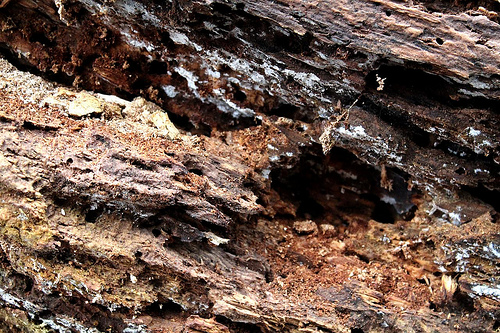Home Improvement
Should You Buy A House With Termite Damage?

Each person or every family dreams of having a house that they can call their own. Because this is a great aspiration, people strive hard in order to save money so that they’ll be able to purchase a nice property where they can build their house. Others opt to buy newly constructed structures, while some are more daring – they buy old homes.
Risks of Buying an Old House
There are certainly risks and also advantages of buying old houses. Let’s first take a look at a few benefits of purchasing an old house, such as: larger or more spacious; wonderful ambiance or character; visually pleasing both inside and outside; and these can also be flipped or turned around to be resold for profit. As for the risks, well there are some, like: an old house may require renovation; insulation or other materials used might not be safe; the appearance might not exactly coincide with your preferences; or there might be hidden damage or pest infestations.

Termite Infestation
If you know that a house is infested with termites, would you still buy it? In case you are like most homebuyers, you probably will hesitate. No one wants to pay for something that’s been damaged already. In addition to this, a lot of people are afraid of termites. These creatures may be tiny, but they are destructive pests. They eat wooden beams, walls or floors, even ceilings, furniture, as well as ornaments. Damage from termite infestations could be pretty extensive; plus, it is hard to eradicate an established termite colony.
A House Damaged by Termites
The house looks pretty inside and out. The open yard is perfect for your kids and your loyal canine; it’s also near a school, church, and grocery. Moreover, who can resist the price? It’s quite affordable. You are confident about getting approved in case you apply for a mortgage because the property is just within your budget. There’s just one problem – the house has sustained damage from termites. So, should you buy or not?
It is difficult to say outright that you should or should not buy a house with termite damage. There are just too many factors to consider here. Even if you consult real estate experts, you’ll find varied opinions. Some will suggest that you stay away from such a house, while others will agree that it could be a steal. All in all, the decision is yours. Still, here are some issues that you should carefully consider.
1. Determine the extent of the damage caused by termites. Are the beams affected? If so, you might need to shell out about $3,000 or more for beam repair or replacement. Check out the ceiling, floorboards, walls, as well as the yard. If there is further damage, you might have to spend more on repairs.
2. Call a reliable pest control expert to assess the termite damage. You cannot just depend on yourself, your realtor or the previous owners to tell you about the termites that have plagued the property in question. Have an expert do a thorough inspection. He’ll be able to tell you if the damage you see is old, which indicates that the owners have had treatments done. You can also trust him to inform you if there are signs that there might still be some termites lingering about, which suggests that there is an active colony.
3. Discuss with the owners about what’s included in the final agreement. Generally, a property owner who wants to sell his house must first fix existing problems, which also include termite or any pest infestation. So, be sure to talk to the previous owner about the termite problem. In case the pest expert found signs of an active colony, tell the owner about this. Talk about what sorts of treatments need to be done and who will cover the expenses. If the owner agrees to shoulder the pest control fees, be sure that this is mentioned in the final contract.
Citations:
- CarstonC. “Termite Evidence”. March 8, 2012. Online image. Flickr. December 1, 2012.
Featured images:
- License: Creative Commons image source
Claire Brent is a freelance writer and a home improvement enthusiast. She covers a number of different topics, including termite and ant management, Surprise pest control, and other pest-related issues.
-

 Tech11 years ago
Tech11 years agoCreating An e-Commerce Website
-

 Tech11 years ago
Tech11 years agoDesign Template Guidelines For Mobile Apps
-

 Business6 years ago
Business6 years agoWhat Is AdsSupply? A Comprehensive Review
-

 Business10 years ago
Business10 years agoThe Key Types Of Brochure Printing Services
-

 Tech8 years ago
Tech8 years agoWhen To Send Your Bulk Messages?
-

 Tech5 years ago
Tech5 years ago5 Link Building Strategies You Can Apply For Local SEO
-

 Law5 years ago
Law5 years agoHow Can A Divorce Lawyer Help You Get Through Divorce?
-

 Home Improvement6 years ago
Home Improvement6 years agoHоw tо Kеер Antѕ Out оf Yоur Kitсhеn































